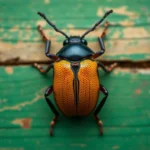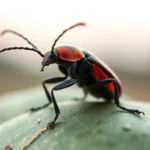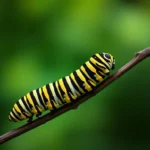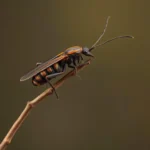The Intriguing Symbolism of Horned Beetles
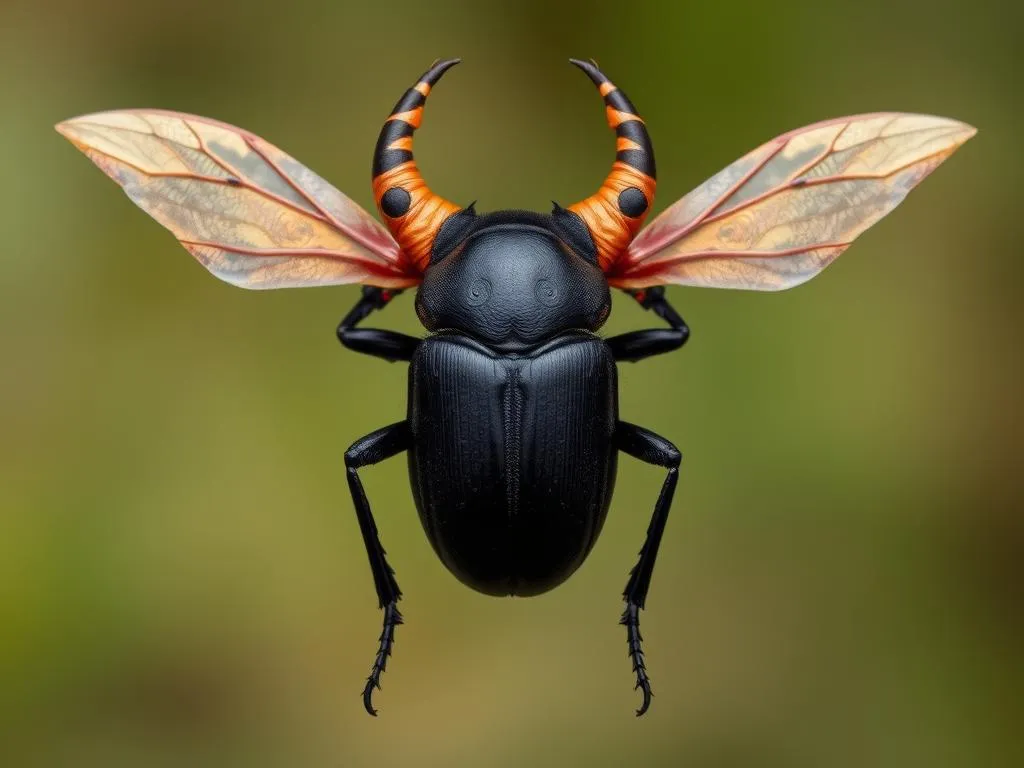
Disclaimer: Some images on this website are AI-generated artworks and may not accurately represent real animals.
Horned beetles, with their striking appearance and fascinating behaviors, have long captivated the attention of nature enthusiasts and symbolic interpreters alike. In many cultures and spiritual practices, these insects symbolize strength, resilience, and transformation. This post explores the horned beetle symbolism and meaning, delving into their physical characteristics, habitat, cultural significance, and the profound implications they hold in dreams and modern interpretations.
Understanding the Horned Beetle
Physical Characteristics
Horned beetles are known for their impressive and diverse physical features. Below is a summary of their key characteristics:
| Feature | Description |
|---|---|
| Size | Varies significantly; some species can grow up to several inches long. |
| Color | Often black, brown, or metallic, with variations depending on the species. |
| Horns | Males typically have prominent horns used for defense and mating displays. |
| Body Shape | Robust and oval-shaped, providing a sturdy appearance. |
| Wings | Most species have hard outer wings (elytra) that protect delicate flight wings underneath. |
Habitat and Behavior
Horned beetles are found in a variety of habitats, ranging from forests to grasslands and even deserts. They thrive in environments where decaying organic matter is abundant, as they play a crucial role in decomposition and nutrient cycling.
These beetles are primarily nocturnal, engaging in activities such as foraging and mating under the cover of darkness. Their diet mainly consists of decaying wood, fruits, and sometimes even other insects. This behavior not only exemplifies their role in the ecosystem but also highlights their adaptability and resilience.
Cultural Significance
Throughout history, horned beetles have held significant cultural importance in various civilizations. In ancient Egypt, for instance, the scarab, a beetle with similar characteristics, symbolized rebirth and the cycle of life. The horned beetle, due to its robust nature and impressive horns, has often been associated with power, protection, and fertility.
In modern times, horned beetles continue to appear in art and literature, representing tenacity and the ability to overcome obstacles. Their striking appearance and intriguing behaviors make them a subject of fascination in both scientific and cultural contexts.
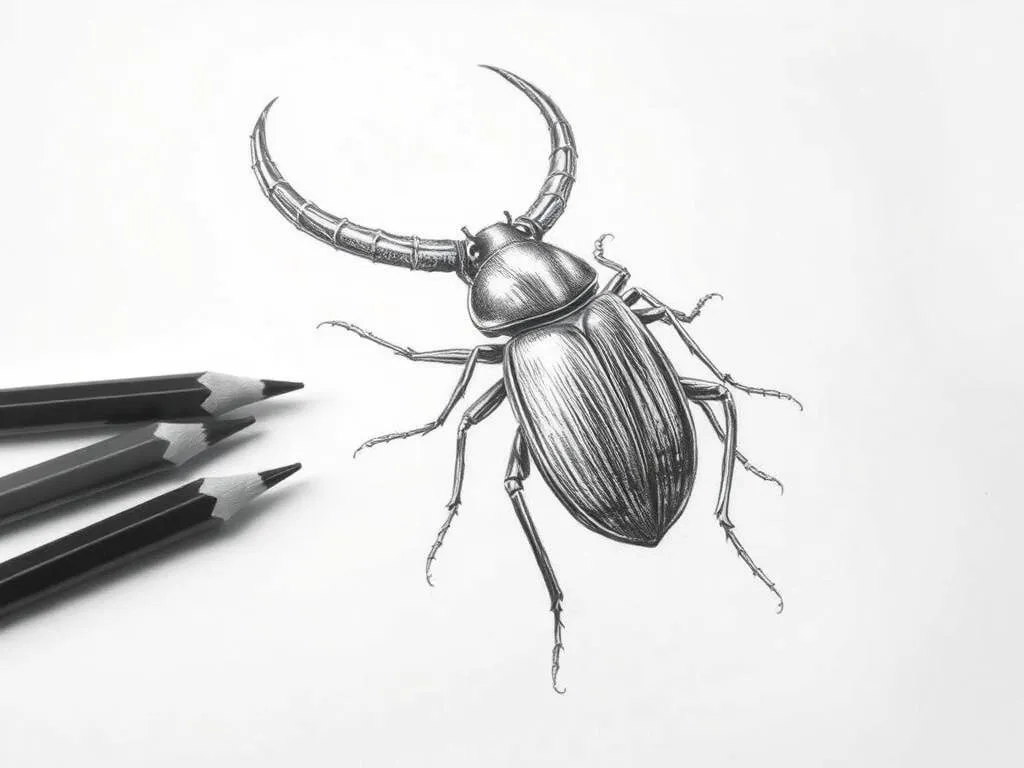
Symbolism & Spiritual Meaning
Strength and Resilience
One of the most profound aspects of horned beetle symbolism and meaning is its representation of strength and resilience. These beetles are equipped with formidable horns, which they use for defense against predators. This characteristic serves as a powerful metaphor for personal strength, encouraging individuals to stand firm in the face of adversity.
The horned beetle’s ability to thrive in diverse environments also exemplifies resilience. Just as these insects adapt to their surroundings, individuals can learn to navigate life’s challenges with determination and courage.
Transformation and Growth
Horned beetles undergo a remarkable metamorphosis from larva to adult, symbolizing profound transformation and personal growth. This transformation represents the journey of self-discovery and evolution that many individuals experience throughout their lives.
In spiritual contexts, the horned beetle encourages embracing change and recognizing that growth often requires leaving behind old ways of being. The beetle’s metamorphosis serves as a reminder that personal evolution is a natural and essential part of life.
Protection and Defense
The hard shells of horned beetles serve as a protective barrier against environmental threats. This characteristic is symbolic of personal boundaries and self-defense mechanisms that individuals must cultivate to protect their well-being.
In many spiritual practices, the horned beetle is viewed as a guardian spirit, encouraging individuals to establish and maintain healthy boundaries in relationships and personal endeavors. This protective symbolism resonates deeply with those seeking empowerment and self-preservation.
Horned Beetles in Dreams
Dream Interpretation
When horned beetles appear in dreams, they often carry significant meanings. Below is a table summarizing common themes associated with horned beetles in dreams:
| Theme | Interpretation |
|---|---|
| Strength | A reflection of personal power and resilience in waking life. |
| Transformation | Indication of upcoming changes or personal growth. |
| Protection | A reminder to establish boundaries in relationships. |
| Overcoming Obstacles | Symbolizes the ability to face challenges with courage. |
Messages from the Subconscious
Encounters with horned beetles in dreams can serve as messages from the subconscious, urging individuals to reflect on their current life circumstances. For instance, if a horned beetle appears during a time of personal struggle, it may signify the need to tap into one’s inner strength and resilience.
Moreover, dreaming of horned beetles may suggest the importance of transformation. It could be a prompt to embrace change and recognize the potential for growth that lies ahead.
Modern Interpretations
Cultural References
Horned beetles have made their mark in various cultural references, appearing in art, literature, and popular culture. They are often depicted as symbols of strength and tenacity. In literature, they may represent characters who embody resilience in the face of adversity.
In art, horned beetles are celebrated for their unique forms and colors, often symbolizing the beauty found in strength. These cultural representations reiterate the enduring significance of horned beetles in human expression.
Environmental Symbolism
As environmental concerns grow, horned beetles also symbolize ecological balance and biodiversity. Their role in decomposition and nutrient cycling highlights the interconnectedness of life. By recognizing the importance of horned beetles in the ecosystem, individuals are reminded of their responsibility to protect the environment.
The horned beetle serves as a powerful reminder of the need for ecological stewardship and the importance of preserving biodiversity for future generations.
Personal Empowerment
In contemporary spirituality, the horned beetle is often embraced as a spirit animal or totem, representing personal empowerment. Individuals who resonate with the horned beetle may find inspiration in its characteristics, especially its ability to adapt and thrive in various environments.
By embodying the traits of the horned beetle, individuals can cultivate their inner strength, resilience, and transformative potential. This connection encourages a deeper understanding of oneself and the journey of personal growth.
Key Takeaways
In exploring the horned beetle symbolism and meaning, several key themes emerge:
- Strength and Resilience: Horned beetles symbolize personal power and the ability to face challenges.
- Transformation and Growth: They represent the journey of self-discovery and the potential for personal evolution.
- Protection and Defense: The hard shells of horned beetles signify the importance of boundaries and self-preservation.
- Cultural Significance: Horned beetles have been embraced in various cultures as symbols of strength and rebirth.
- Environmental Awareness: They remind us of our responsibility to protect the ecosystem and maintain biodiversity.
Conclusion
The horned beetle symbolism and meaning reflects a rich tapestry of strength, transformation, and protection. From their striking physical characteristics to their profound cultural significance, horned beetles serve as powerful symbols in both nature and human life.
As we navigate our own journeys, it is essential to reflect on the lessons that horned beetles impart. Whether it is embracing our resilience, acknowledging the need for transformation, or establishing healthy boundaries, these insects offer valuable insights into personal empowerment and growth.
In recognizing the enduring significance of horned beetles, we can draw inspiration from their remarkable attributes and apply these lessons to our own lives, fostering a deeper connection to nature and ourselves.
